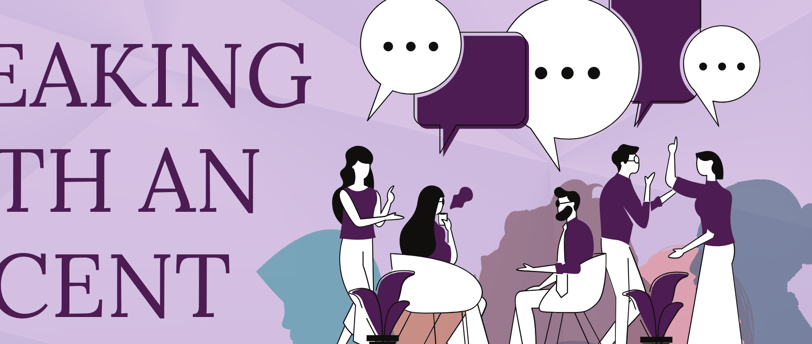Is Speaking with an Accent Brave?
Amy Chua's quote on foreign accents opens an interesting discussion. Is speaking with an accent brave?
3 min read


“Do you know what a foreign accent is? It's a sign of bravery.” — Amy Chua
I strongly agree with this quote from Amy Chua, but I feel like this is often forgotten, even by myself. In school, we learn that poorly pronounced words and grammatical errors are signs of ignorance. We hear it said so often how it's a pity that immigrants don’t learn to speak the language of their new country well, and that they don’t try to integrate enough. Foreign accents are made ridiculous on TV; they become characters themselves, just imitate an accent, and everyone understands the joke.*
There is so much to discuss where foreign accents are concerned: some people love certain accents, but not others; some people criticize them point blank because they believe it is a sign that the foreigner isn’t putting in enough effort to learn the language, while for others keeping their accent is a sign of pride in their origins. I have a love-hate relationship with my accent when I speak Italian because, on one hand, it is a sign of how far I have come, but on the other, it marks me as being different, which isn’t necessarily a bad thing, but it can cause feelings of isolation and otherness.
My accent is sometimes very strong. When I am tired, it is hard to hold my mouth in the shape necessary to reproduce the sounds typical of the Italian language. American English is spoken mostly with the front part of the mouth, while to pronounce the sounds of Italian well, you must speak with the middle and back of your palate. You have to change the way you hold your tongue and the way you breathe. There is a different tension, and even the timbre of my voice changes. I know that as soon as I open my mouth, even trying as hard as I can, the accent will still be there. It is obvious to anyone listening to me that I am not Italian, and this brings with it certain expectations on the part of the listener. Depending on their own preconceptions, sometimes, people won’t understand me just because I have an accent, or they may think or believe certain things about me based solely on my accent. There are days when I don’t care at all about the prejudice that I see in the expressions of a stranger when I speak, but other days, I find it really trying, and I don’t feel the bravery Chua talks about enough to speak.
Anyone who has ever studied a language and then gone to that country to study, live, or even just visit, and then tried to speak the language has had to face this obstacle. The difficult precipice of trying to speak even when you know full and well that you don’t know the right words and that your accent clearly signals your foreignness. It is a battle to find the courage to open your mouth, to speak, and then to try again and again until you are able to communicate. Knowing that you are going to make mistakes but opening your mouth anyway is always a courageous act, in my opinion. Plus, if the point of language is communication between people, the most important thing is to simply be understood, right? Sometimes, yes, your mistakes will keep others from understanding you, and it will be necessary to try again, but being a native speaker does not prevent all misunderstandings. It does not mean that you know how to pronounce every single word in your language correctly or that you know what every word means. We need to learn to listen with grace and humility.
This quote is a starting point for many interesting and important reflections: is it brave to speak another language? Does speaking with an accent mean that you do not know another language well? How indicative is the ability to speak without errors of one’s ability to understand a language fully? Is it possible for anyone to lose their accent if they just work hard enough? Is it necessary? Maybe in another blog, I will address some of these topics.
*Note: I want to specify that I am not specifically talking about any one country or group of people. These are things that happen everywhere in the world with any language. I admit to having thought and spoken critically about someone who didn’t speak my language well. This is something that we must all learn to recognize in ourselves and then begin to deconstruct our own preconceptions and prejudices.


Contact
hannahc@thoughtfultranslations.com
P.Iva: 02399890686
